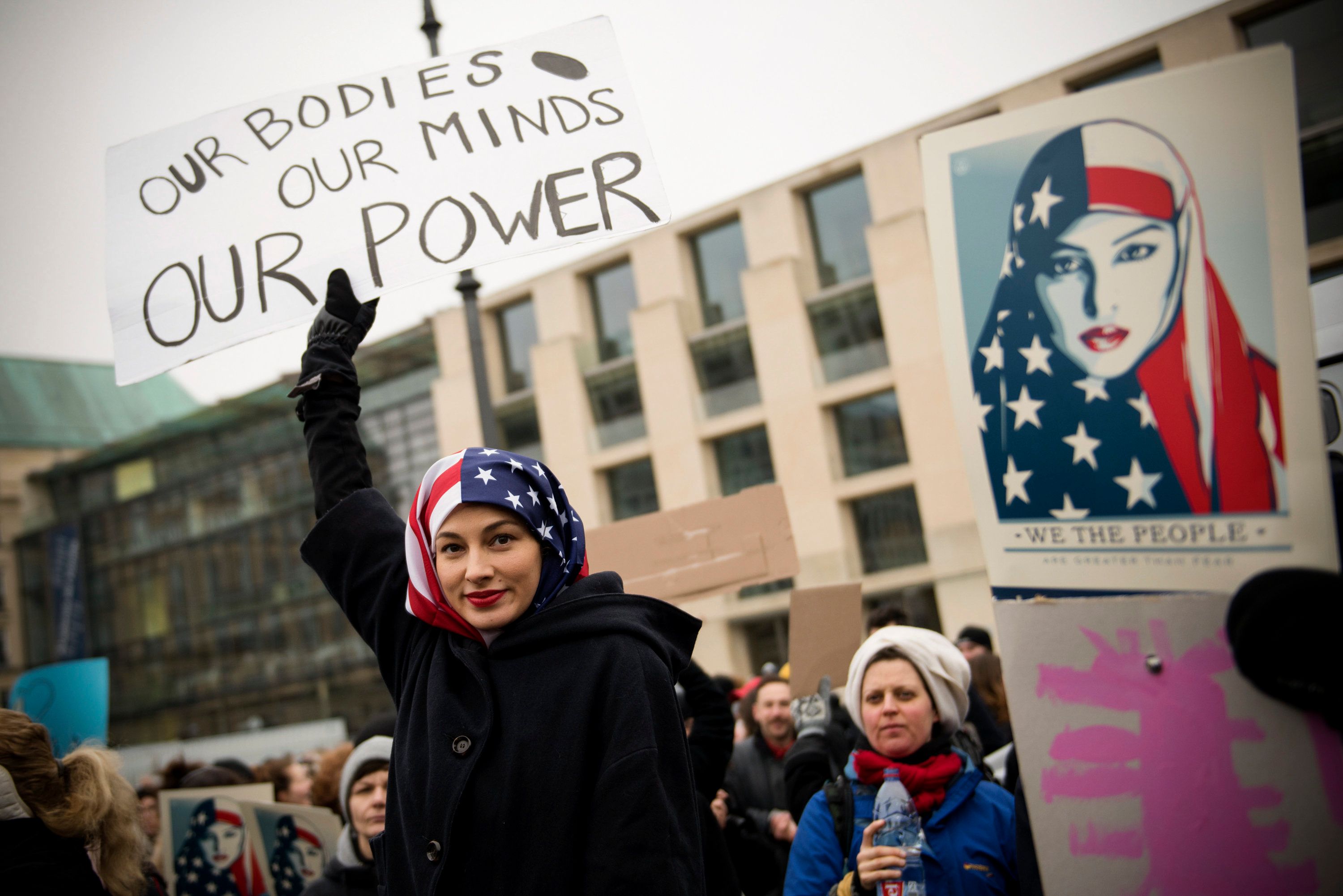Imagine being a woman and being told that your feminine products are not exempt from taxation because it is considered a "luxury."
Imagine being a woman who is denied public office because her "emotions" will get in the way of tough decisions.
Imagine being a woman who is neglected being given the same pay as her male co-worker, despite working the same job.
Imagine being a woman and no longer having the power to say what happens to your body.
For 125.9 million adult women in the United States, including myself, those scenarios do not have to be imagined, because it is an unfortunate part of our reality. And truth be told, because of this, being a woman is exhausting.
Every day, we must fight for to be free from sexual violence, to hold public office, to have equal rights to work, to fair wages or equal pay. And now, we must fight for yet another thing. Something that we had already won the right to have: reproductive rights.
45 years ago, in 1973, the U.S. Supreme Court recognized a woman's constitutional right to an abortion in the decision of Roe v. Wade. The momentous ruling legalized abortion nationwide but has received scrutiny ever since.
Recently, the decision of Roe v. Wade has been placed in greater jeopardy, due to the nomination of U.S. Court of Appeal for the District of Columbia, Judge Brett Kavanaugh.
What is Roe v. Wade?
The case of Roe v. Wade was filed by Norma McCorvey, who, at the time, went by the anonymous pseudonym "Jane Roe." In 1969, McCorvey, who lived in Texas, was looking to terminate an unwanted pregnancy. But she couldn't due to the strict anti-abortion laws in Texas and nearly every state at the time.
The laws proclaimed abortion as a crime unless a woman's life was at risk. Nevertheless, seeking to safely and legitimately abort her pregnancy, McCorvey sued Henry Wade, the Dallas county district attorney, in 1970. The case later traveled to the Supreme Court.
After three years, on January 22, 1973, the Supreme Court announced the defining ruling, with a 7-2 decision that a woman's right to make her own medical decision, including the choice to have an abortion, is protected under the 14th Amendment.
Why Kavanaugh's Nomination is Significant
The Roe v. Wade decision has never been overturned, but in the years since, state laws have been passed to restrict access to abortion. Nonetheless, with Judge Kavanaugh's nomination, women might be facing the greatest risk to the future of reproductive rights in the United States by placing the power of abortion legality into the hands of the states.
In 2016, during the presidential election, President Trump promised that he would only appoint Supreme Court Justices who would overturn Roe v. Wade, and with the nomination of Judge Kavanaugh, it can only be assumed that Trump made good on that promise.
Reversing the historical case would not automatically make abortion illegal across the country. Instead, it would return the decision about abortion legality to the states, where a patchwork of laws already in place render abortion available, largely depending on individual states political leanings.
As the Washington Post,Guttmacher, and The Center of Reproductive Rights report, some states have pre-Roe abortion laws on the books, while others have passed laws intended to take effect if Roe is ever overturned. But other states have passed laws specifically to keep abortion legal in that case. So, the legality of abortion would depend on which states you live in:
States with "trigger laws" that would automatically ban some or all abortions:
Louisiana, Mississippi, North Dakota, and South Dakota
States with pre-Roe abortion bans still on the books:
Alabama, Arizona, Arkansas, Massachusetts, Michigan, Mississippi, New Mexico, Oklahoma, Wisconsin, and West Virginia.
States with laws that describe an intention to pass anti-abortion laws:
Arkansas, Kansas, Kentucky, Louisiana, Missouri, North Dakota, and Ohio.
States with laws that explicitly protect abortion:
California, Connecticut, Delaware, Hawaii, Maine, Maryland, Nevada, and Washington.
Check out the Center of Reproductive Rights Website to find out more.
How Can You Help Keep Abortion Safe?
VOTE
Seriously, your voice is important and your opinion matters. Vote in the primaries and midterms, In local elections and in 2020. Vote early and often, and vote for pro-choice candidates.
Call Your Representatives
The damage to abortion access is already being done at the state level. So, it's about time you call your representatives and tell them what you really think about their policies.
Donate to Planned Parenthood and Other Groups
If you can, donating to Planned Parenthood helps the organization fight laws and policies that assure women's access to the reproductive health they require. You can also donate at the National Network of Abortion Funds, which help women who can't afford the procedure by paying for abortions and helping with services with transportation, translation, childcare, and a place to stay.
Become More Knowledgeable on Abortion
Abortion usually has a negative stigma due to miscommunications. Become informed and talk to your family member and friends.
Featured image by Getty Images
- Women fear abortion rights under threat - BBC News ›
- Susan Collins: Won't support SCOTUS pick hostile to abortion rights ... ›
- Abortion Rights FAQs - FindLaw ›
- Opinion | The threat to abortion rights is bigger than you think ›
- Trump's Values and the Fate of Abortion Rights - Bloomberg ›
- States' ballot measures target abortion rights - POLITICO ›
- Abortion rights : NPR ›
- Opinion | To Save Abortion Rights, We Have to Think Beyond Roe ... ›
- State of abortion rights ›
- Abortion-rights movements - Wikipedia ›
